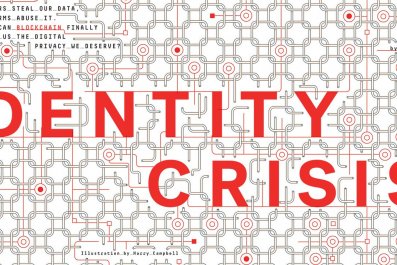
Diagnostic and treatment procedures are exorbitantly expensive. Claims processes are shrouded in mystery. Critical patient data is fragmented and inaccessible. The health care industry is ripe for blockchain-inspired transformation, and SimplyVital Health is leading the charge.
The company—which would be part of a system where patients pay for outcomes rather than for procedures and doctor visits—will allow its customers to securely access all their medical records via their phone.
To promote such value-based care, co-founder and CEO Kat Kuzmeskas, co-founder and Chief Technology Officer Lucas Hendren and their team have created a network of tools for a new digital health care ecosystem. Their products will let patients, hospitals, doctors, insurers and pharmaceutical companies share medical information quickly and efficiently. And because the records will be stored on a blockchain, the data will be reliable and immutable.
Health Nexus, one of the few open-source, public blockchain protocols compatible with federal privacy laws, is the software that connects health care players within the network. It lets developers build applications on the blockchain without having to worry about compliance issues. The company's program uses blockchain as an audit trail to improve the end-to-end process of insurance reimbursement, including claims processing and payment distribution. In the product's first four months, it has led to an average savings of $6,600 per patient for health care providers.
SimplyVital Health is also encouraging the entire health care industry to adopt blockchain. The company leads the Data Sharing Subcommittee at PhUSE, a nonprofit data science organization, which is working with pharmaceutical companies such as Novartis to make health care more efficient. It is also collaborating with Stanford's Department of Biomedical Data Science on making medical data more accessible to researchers.
Kuzmeskas, a former administrator at Yale New Haven Hospital, in 2016 had recognized the need for a new type of health care data platform. She and Hendren, the former tech lead for the blockchain development team at Capital One, came up with the prototype of their first product during the BTC Media Distributed Health Hackathon.
Blockchain technology could lead to savings of $100 billion in the health care industry by 2025. It could also expand available treatment options, make diagnoses faster and more accurate and give previously marginalized communities access to critical medical data. With access to more data, health care providers can better evaluate their patients, treat them more effectively and track their progress.
The tools that SimplyVital Health is building could help make health care more accessible, affordable and effective for all.
→ Galia Benartzi has been building software startups since 2005. She is currently working on a cryptocurrency protocol called Bancor.


















